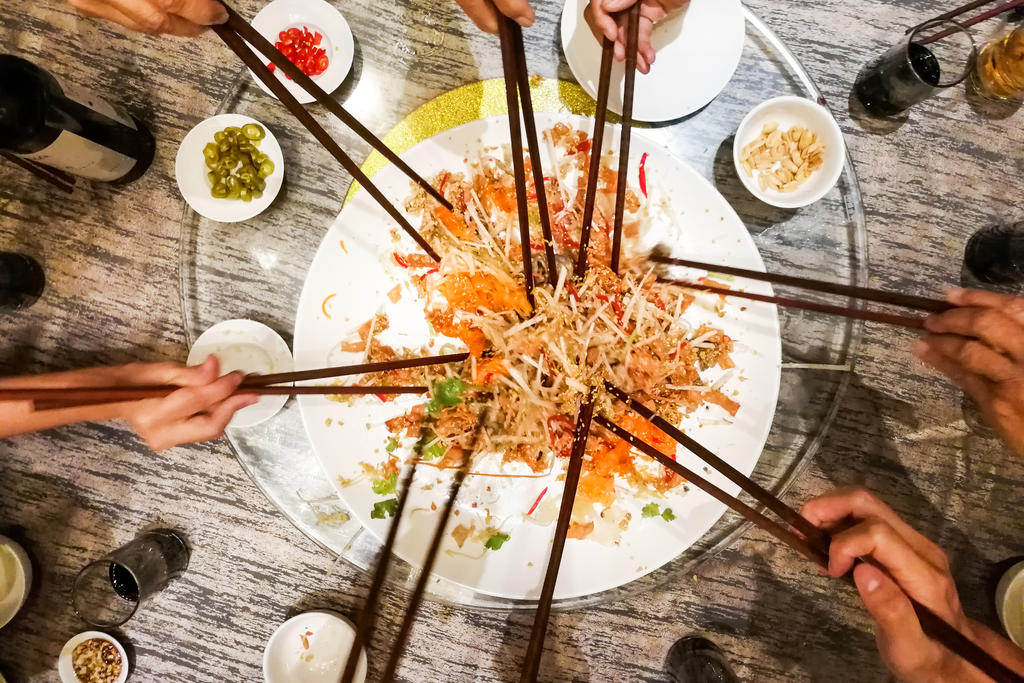SINGAPORE, Jan 23 — With the upcoming Chinese New Year festivities, safe management measures will be tightened, with increased enforcement checks at food-and-beverage (F&B) establishments, malls and crowded public spaces, the Ministry of Health (MoH) said yesterday.
In a media release, the ministry said that a daily cap of eight visitors for each household will be imposed from January 26 onwards.
Individuals should limit themselves to visiting two other households a day, as much as possible.
The maximum group size for social gatherings outside the house will remain at eight people for now.
Nearly a month since Singapore moved to Phase Three of its gradual reopening of the economy, the number of community cases has increased over the past week, some of which have no links to confirmed cases and have contributed to the formation of clusters.
“This is a real cause for concern as it could indicate that there is wider, as yet undetected, community transmission,” MoH added. Among a calibration of safe management measures announced yesterday is the postponement of the National School Games, which were originally slated to start in February.
A review will be done by the Ministry of Education on the type of sports to resume and in what format, in order to ensure a safe resumption of the games for students. The ministry will provide details later.
The Ministry of Trade and Industry and the Ministry of Home Affairs had announced in a joint press statement on Tuesday that pilots for the reopening of nightclubs and karaoke outlets that were intended to start this month have been deferred until further notice.
Education Minister Lawrence Wong, who co-chairs the government’s Covid-19 task force, yesterday said at a virtual press conference that the recent increase in community cases “didn’t just happen out of nowhere” but was a result of the increased interactions over the year-end period.
“Based on the recent cases that we have seen… we are seeing increased signs of complacency in the community about the transmission risk,” he added.
Wong also recalled the spike in Covid-19 cases here after the Chinese New Year period last year, which resulted in several clusters linked to such gatherings.
“We don't want a repeat of that happening, and that's why we are making a preemptive move now to tighten some of our measures.”
Dining out, having ‘lo hei’
MoH yesterday reiterated the importance of abiding by the new measures to curb the spread of the coronavirus during the festive period, especially since the risk of transmission in the community will be increased.
It urged Singaporeans dining out to continue to wear a mask when they are not eating or drinking.
Diners must wear a mask during the tossing of yusheng — a raw fish salad tossed by diners around the table, which is usually accompanied by the chanting of auspicious phrases for the new year.
The practice, known as “lo hei”, should also be done without any verbalisation of the usual auspicious phrases, MoH said.
“We will step up enforcement checks at F&B establishments, malls and other crowded public spaces during this period. Strict enforcement actions will be taken against individuals and operators who do not comply with safe management measures,” it added.
Penalties for breaching safe distancing rules include fines and prosecution. Businesses that do not comply with the regulations face possible suspension of their operations.
Wong said that dining out remains an activity that carries some risk because people are not always having their masks on and in a space with many people for some prolonged period of time.
“All diners must continue to abide by these rules and keep their voices down. There should not be any singing or shouting or talking during a meal.
“We have to be especially careful during the Chinese New Year period. So if you are out in a restaurant and you want to order yusheng — well, they may serve you the yusheng but during the lo hei, you have to keep your mask on, and there should be no shouting of auspicious phrases by the F&B staff or by the patrons in the restaurant. Likewise for reunion dinners.
“You can go out to dine together as a family in a table of eight, but there should not be any multiple table bookings. This is a current rule and ongoing rule. And we will continue to enforce it.”
He also stressed that the mindset around the regulations set by the task force should be what it has been emphasising all along: It should not be a case of trying to “optimise your maximum gain” or getting some extra benefit out of it such as by having more interactions.
“The more you try to optimise, by having more exposure (and) more interactions... you're putting yourself and your loved ones at risk,” he said, appealing to the public to understand the rationale of having such rules.
He gave the example of seniors at home who, when exposed to multiple individuals coming and going, can have a higher chance of getting infected, especially since the virus can cause no symptoms in carriers or infected persons.
“(So) if you say a person (goes to visit in the) morning… and goes back again in the evening, it's just more exposure to the elderly person. The underlying principle must be: Let's reduce exposure to one another.”
He reminded members of the public that they could be transmitting the disease to one another even without knowing it because the virus can spread in ways that may not be obvious.
“So understand the reasons why we are putting this in place. We seek everyone's cooperation to minimise the visits, and if you do need to visit, to keep your exposure as short as possible,” he said. ― TODAY






















